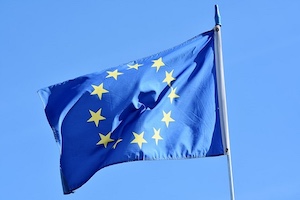EU Urges U.S. to Restore Fair Competition Environment; Will Launch Retaliatory Measures if Tariff Talks Fail

European Commission Vice President for Trade Maroš Šefčovič stated on May 6 that the European Union will not accept an unfair deal from the United States under pressure. If the two sides fail to reach a consensus through negotiations, the EU will defend its interests and implement balancing measures. This signals that the EU is prepared with contingency plans in response to a potentially uncompromising U.S. stance. According to *Bloomberg*, if negotiations fail, the EU may be ready with a €100 billion retaliation list.
Currently, the U.S. imposes a 25% tariff on EU imports of steel, aluminum, and automobiles. Most other goods are subject to a "reciprocal tariff" of 10%, which is set to increase to 20% after a 90-day grace period. More than 70% of EU exports to the U.S.—worth around €380 billion—are already affected. If additional categories such as pharmaceuticals and semiconductors are included, this could cover over 97% of goods, totaling approximately €549 billion. The total value of tariffs imposed could reach €100 billion. In comparison, U.S. tariffs on EU goods in 2024 were only €7 billion.
Šefčovič asserted that the EU is not backing down, noting that it is actively negotiating free trade agreements with Asian countries including India, Indonesia, the Philippines, Thailand, and Malaysia. "All countries want to accelerate their agreements with the EU," he said. He also mentioned that the EU has established a task force to monitor "trade diversion effects" caused by U.S. tariffs, with a report expected in mid-May.
So far, the EU has not taken retaliatory actions against the U.S., but has publicly threatened to impose tariffs worth \$21 billion on U.S. goods in response to the 25% tariffs on steel, aluminum, and automobiles imposed by the Trump administration. Šefčovič emphasized that the EU continues to show sincerity in resolving the dispute, such as proposing that both sides reduce import tariffs to zero across the board—including for strategic industries like automobiles; work together to address global overcapacity issues in sectors such as steel and aluminum; and jointly enhance the resilience of the transatlantic supply chains for semiconductors, pharmaceuticals, and other industries. He urged the U.S. to pursue a fair and balanced solution, warning that “we are ready with alternatives to restore a fair competitive environment” if not.
- 121 reads
Human Rights
Fostering a More Humane World: The 28th Eurasian Economic Summi

Conscience, Hope, and Action: Keys to Global Peace and Sustainability

Ringing FOWPAL’s Peace Bell for the World:Nobel Peace Prize Laureates’ Visions and Actions

Protecting the World’s Cultural Diversity for a Sustainable Future

Puppet Show I International Friendship Day 2020

